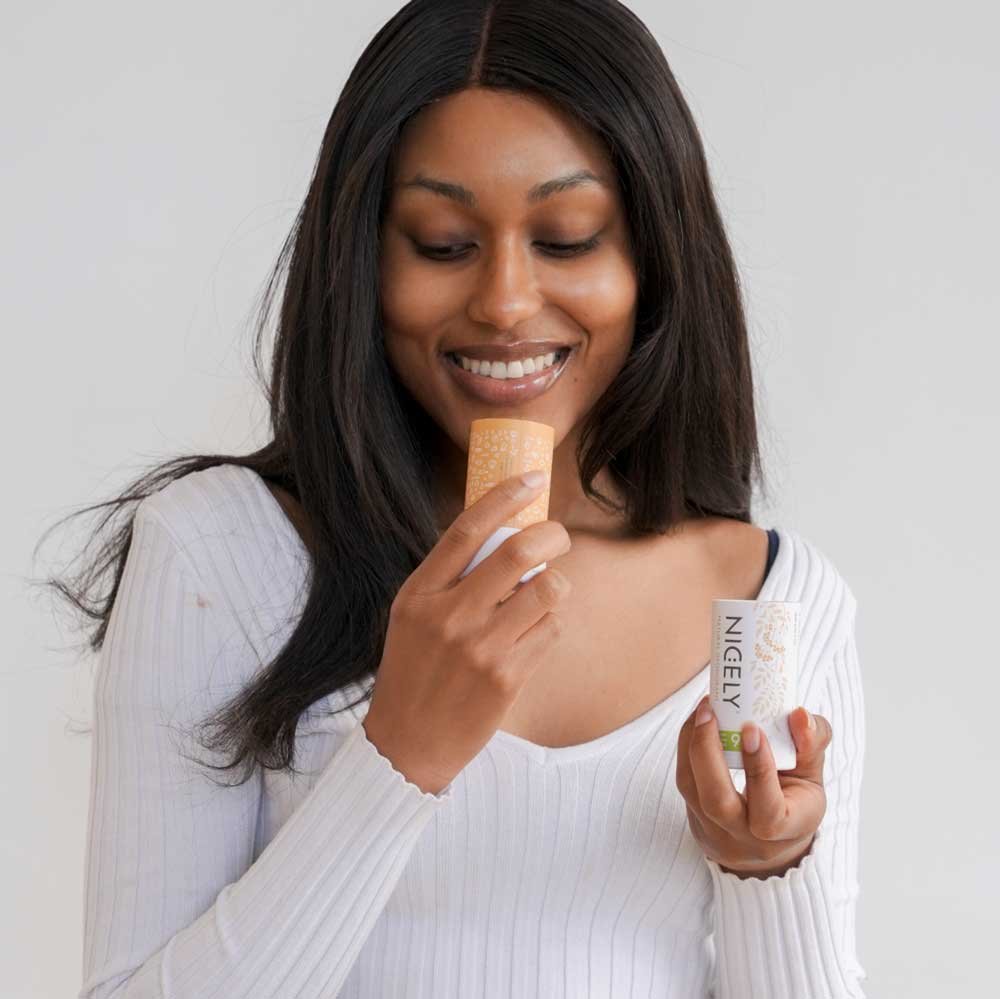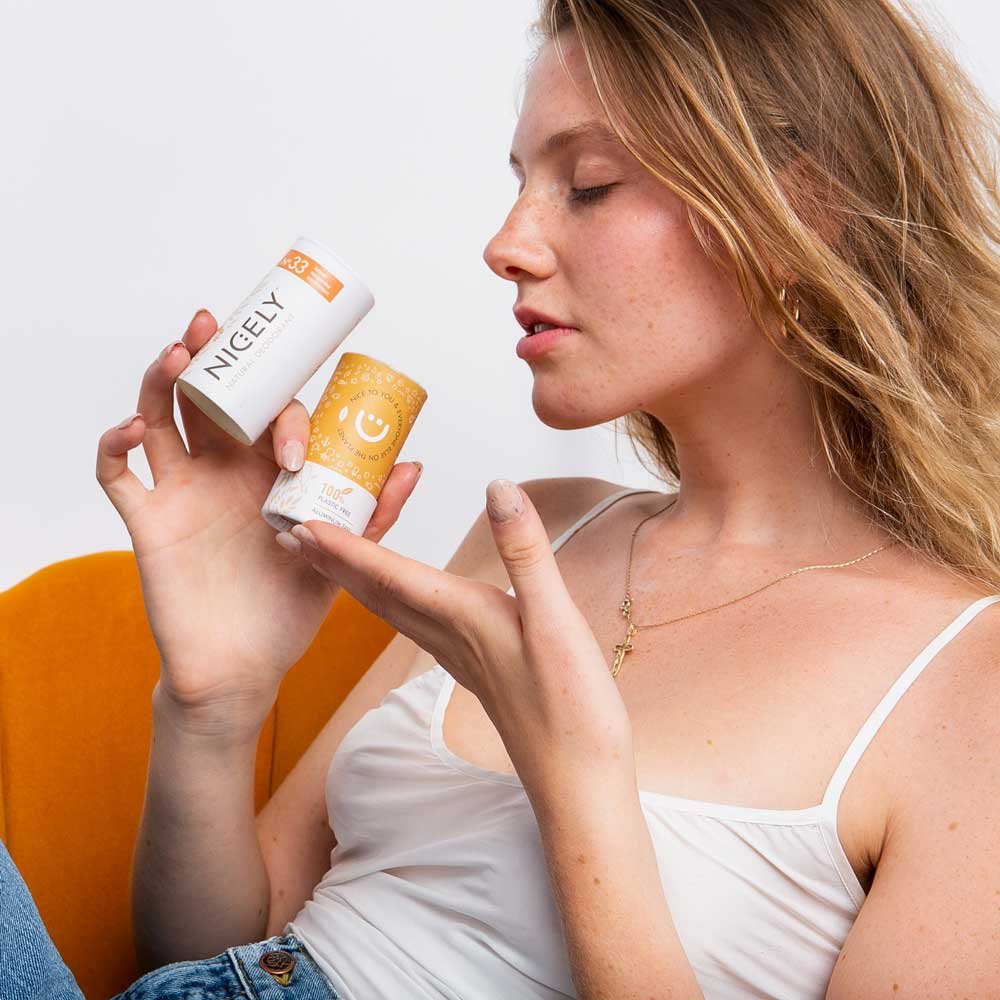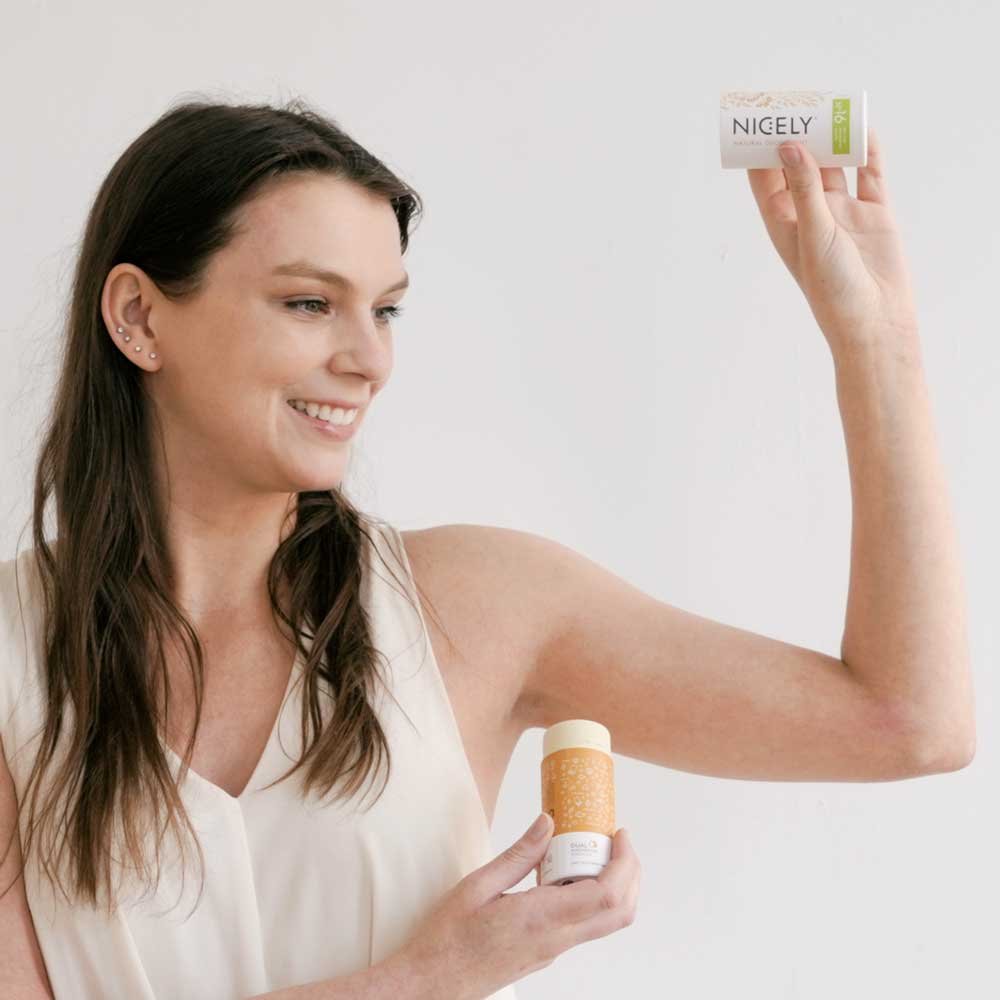Aluminum Salts in Deodorant: Safe or Harmful?
We recently wrote about how aluminum can affect pregnant women and their babies. But how harmful is aluminum in deodorant for everyone else, really?
Aluminum is a metal that can be found in many deodorants and antiperspirants. Why is it there and what does it do? It works by forming a gel that enters our pores, it blocks them and provides a temporary solution by stopping sweating. But it also has an effect on other natural functions. It's blocking our body's natural processes that help eliminate toxins and preventing it from efficiently cooling down, which results in a higher body temperature.
There's a lot of conflicting information out there. Some people say that aluminum in deodorant is very harmful and can cause cancer, while others say that it's perfectly safe. So what's the truth?
The reality is that there hasn't been enough clinical research done on the effects of aluminum in deodorant to say for sure how harmful it is. But there is overwhelming pool of evidence that suggests that aluminum can be toxic and may cause health problems over time. In the age of misinformation, and overload of information, it's important to get your answers from reliable sources. We gathered some facts below, along with links to articles and studies published by UCL, The BMJ, and NIH's PubMed.
The “Aluminum Hypothesis”
The link between Aluminum and Alzheimer’s disease was first proposed in the 1960s
Aluminum: a long history of uncertainty
The link between aluminum and Alzheimer's disease was first proposed in the 1960s, termed the "aluminum hypothesis". In 1988, in Camelford, Cornwall, England, more than 20,000 people were exposed to high doses of Al after accidental contamination of the water in the local water treatment plant. In a ten-year follow-up study originally published in the British Medical Journal (1999), many exposed people were found to have symptoms of cerebral damage, short-term memory and attention loss.
Studies in the 70s and later in the 90s failed to confirm the link. Decades later, with the advancement of science, researchers are starting to reexamine this issue again. Although the issue of everyday sources of Aluminum causing Alzheimer's disease is still controversial, it is widely accepted that Aluminum is a recognized neurotoxin, it can cause cognitive deficiency and dementia if it enters the brain. Isn’t that's enough information to keep you away?
Can Aluminum antiperspirants cause Breast Cancer?
Another issue concerning specifically women is whether aluminum links to breast cancer. During the 90s, medical experts initially rejected the idea due to lack of scientific studies. Most of the studies were focused on ingestion or inhalation of aluminum. Since 2012 we know that "stick" formulation with aluminum has "higher transdermal Al uptake" this study showed... Yes, what you put on your skin is as important as what you eat!
In recent years, clinical studies showing "disproportionately high incidence of breast cancer" in the upper outer part of the breast, near the armpit, together with reports of genomic instability in that area, raise questions again about the link between antiperspirants with aluminum and breast cancer. According to this research, aluminum may affect the activity of oestrogen receptors in human breast cancer cells.
So why are aluminum-containing deodorants and antiperspirants so ubiquitous? It's because they work. But at what cost? Are the risks of using them really worth it? With all that we now know, our answer is a resounding no. There are plenty of safe, aluminum-free options on the market today.
So while the jury is still out on whether or not aluminum in deodorant is harmful, it might be wise to err on the side of caution and avoid using products that contain it. There are many great natural deodorants available on the market that don't contain any aluminum, so there's no need to take any risks with your health.
Safe and effective aluminum-free deodorants for pregnant women
Ditch the stink: Nicely Natural deodorant offers safe 24-hour protection with seven organic active natural ingredients to absorb moisture and neutralize odor-causing bacteria: Coconut oil, MCT oil, Dual Magnesium (oxide and hydroxide), Kaolin Clay, Zinc Ricinoleate, Zinc Oxide, and Baking Soda.





